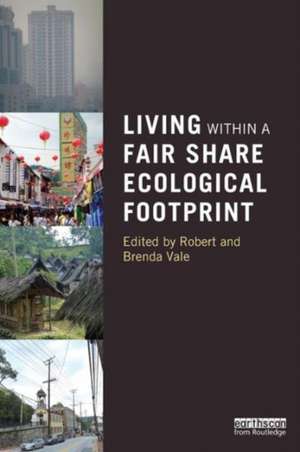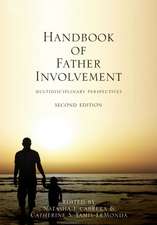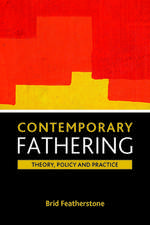Living within a Fair Share Ecological Footprint
Editat de Robert Vale, Brenda Valeen Limba Engleză Paperback – 25 mar 2013
The authors describe numerical methods used to calculate this, concentrating on low or no cost behaviour change, rather than on potentially expensive technological innovation. They show what people need to do now in regions where their current lifestyle means they are living beyond their ecological means, such as in Europe, North America and Australasia. The calculations focus on outcomes rather than on detailed discussion of the methods used. The main objective is to show that living with a reduced ecological footprint is both possible and not so very different from the way most people currently live in the west.
The book clearly demonstrates that change in behaviour now will avoid some very challenging problems in the future. The emphasis is on workable, practical and sustainable solutions based on quantified research, rather than on generalities about overall problems facing humanity.
| Toate formatele și edițiile | Preț | Express |
|---|---|---|
| Paperback (1) | 464.31 lei 6-8 săpt. | |
| Taylor & Francis – 25 mar 2013 | 464.31 lei 6-8 săpt. | |
| Hardback (1) | 1230.16 lei 6-8 săpt. | |
| Taylor & Francis – 25 mar 2013 | 1230.16 lei 6-8 săpt. |
Preț: 464.31 lei
Preț vechi: 546.25 lei
-15% Nou
Puncte Express: 696
Preț estimativ în valută:
88.84€ • 92.76$ • 73.53£
88.84€ • 92.76$ • 73.53£
Carte tipărită la comandă
Livrare economică 04-18 aprilie
Preluare comenzi: 021 569.72.76
Specificații
ISBN-13: 9780415507233
ISBN-10: 0415507235
Pagini: 344
Ilustrații: 110 black & white illustrations, 83 black & white tables
Dimensiuni: 156 x 234 x 23 mm
Greutate: 0.54 kg
Ediția:New.
Editura: Taylor & Francis
Colecția Routledge
Locul publicării:Oxford, United Kingdom
ISBN-10: 0415507235
Pagini: 344
Ilustrații: 110 black & white illustrations, 83 black & white tables
Dimensiuni: 156 x 234 x 23 mm
Greutate: 0.54 kg
Ediția:New.
Editura: Taylor & Francis
Colecția Routledge
Locul publicării:Oxford, United Kingdom
Public țintă
UndergraduateCuprins
Part 1: Introduction 1. Footprints and Fair Earth Share Part 2: What does Living within a Fair Earth Share Mean? 2.1: Personal Footprint 2. Food 3. Domestic Travel 4. Consumer Goods 5. The Dwelling 6. Tourism 2.2: Collective Footprint 7. Infrastructure 8. Government 9. Services Part 3: Footprints in the Past 10. A Study of Wellington in the 1950s Part 4: Footprints in the Present 11. A Study of China 12. A Study of Suberban Thailand 13. Kampung Naga, Indonesia 14. A Study of Hanoi, Vietnam 15. A Study of Suburban New Zealand 16. The Hockerton Housing Project, England 17. Education for Lower Footprints 18. Footprints and Income 19. Sustainable Urban Form Part 5: Conclusions 20. "I wouldn't Start from Here..."
Recenzii
"Informed, informative, scholarly, insightful, thoughtful, and thought-provoking... [A] vitally necessary addition to professional, academic, corporate, and governmental library Environmental Studies reference collections." - The Midwest Book Review, June 2013
"‘Sustainability’ is a term that is bandied about all the time, casually applied to anything that is slightly better than the usual, however marginal the improvement might be. This is a book that corrects that mis-use, setting out exactly what a sustainable lifestyle actually entails." – Jeremy Williams, Make Wealth History
"The key contribution of this collection is the provision of extensive, detailed comparative assessments of the relative ecological footprint associated with different dimensions of our resource consumption, providing at times surprising insights into the comparative impact of, for example, automobile versus air travel, or the ecological footprint reduction that could be achieved with a lowering of meat consumption." – Canadian Studies in Population, Debra J. Davidson, University of Alberta
"‘Sustainability’ is a term that is bandied about all the time, casually applied to anything that is slightly better than the usual, however marginal the improvement might be. This is a book that corrects that mis-use, setting out exactly what a sustainable lifestyle actually entails." – Jeremy Williams, Make Wealth History
"The key contribution of this collection is the provision of extensive, detailed comparative assessments of the relative ecological footprint associated with different dimensions of our resource consumption, providing at times surprising insights into the comparative impact of, for example, automobile versus air travel, or the ecological footprint reduction that could be achieved with a lowering of meat consumption." – Canadian Studies in Population, Debra J. Davidson, University of Alberta
Descriere
The way in which humanity is using the planet's resources is unsustainable. Based on quantified research, this book calculates a fair share ecological footprint and demonstrates how to live within it at minimal cost It is shown that a workable, practical change in behaviour now will avoid very challenging problems in the future.













